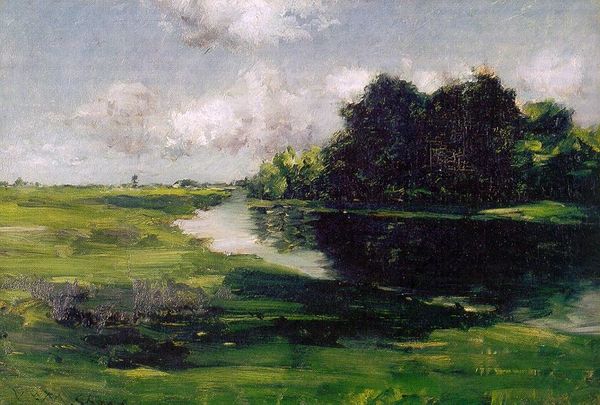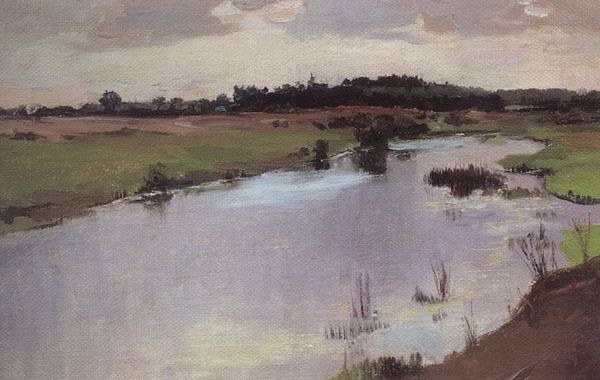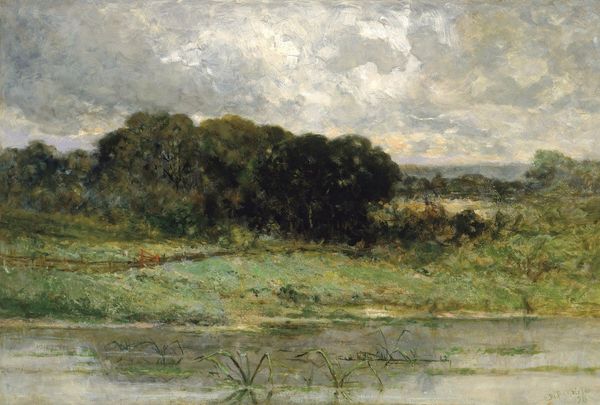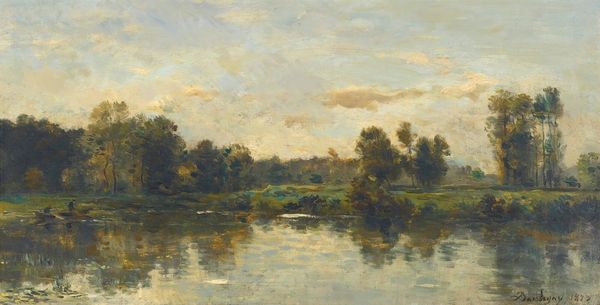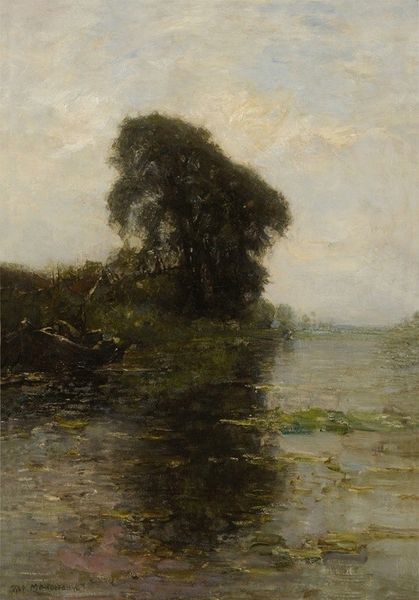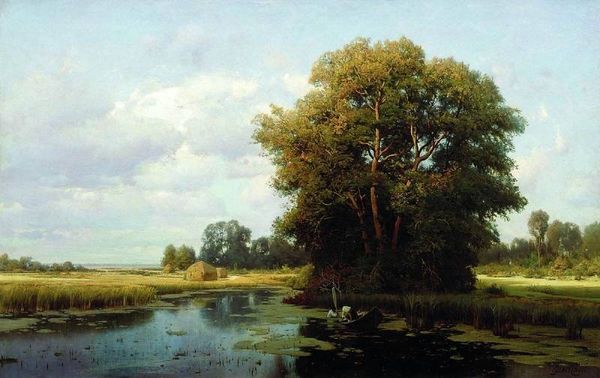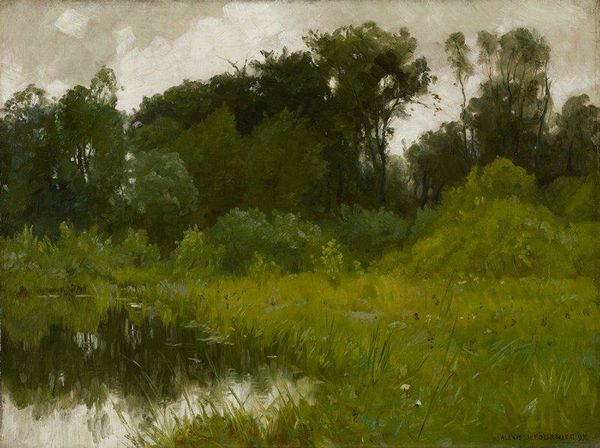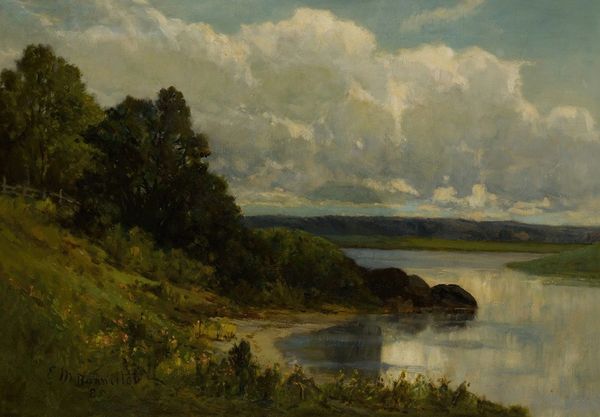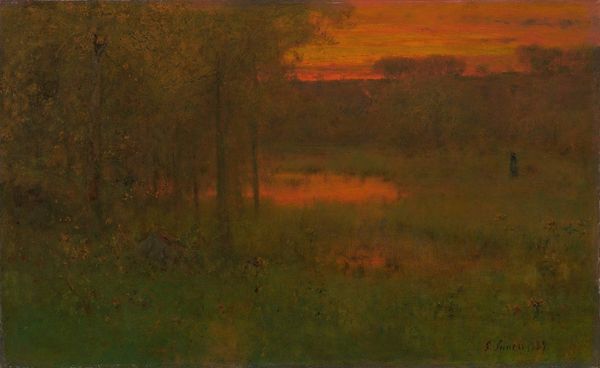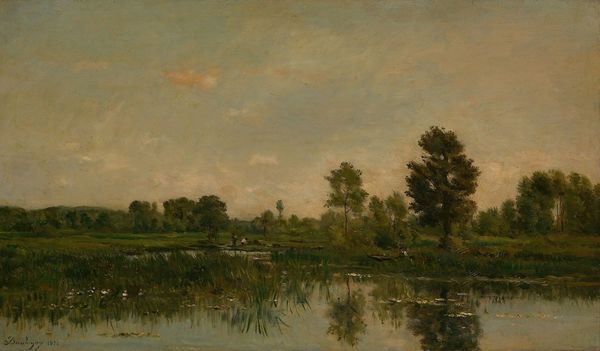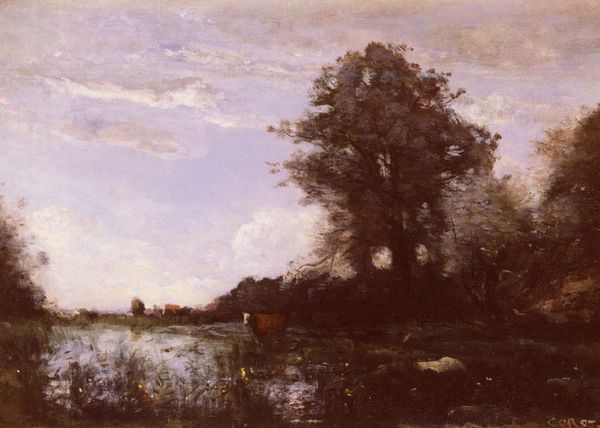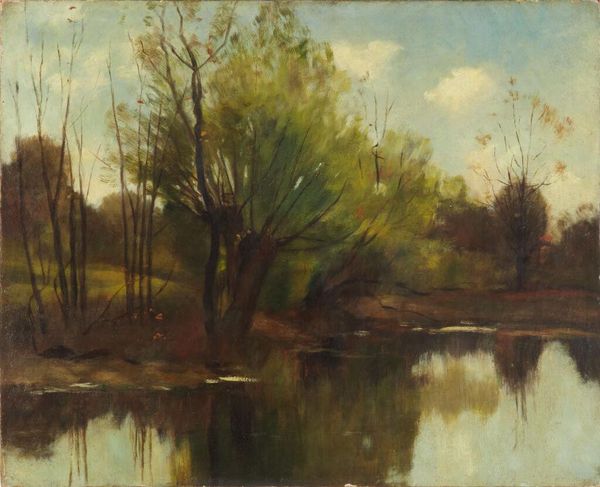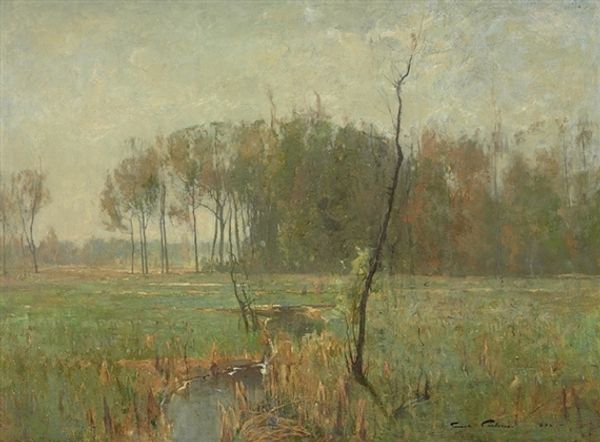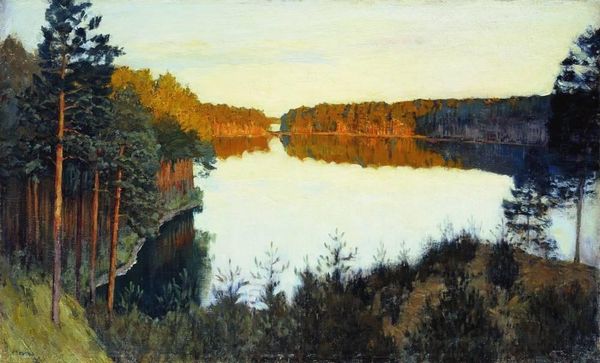
Copyright: Public domain
Editor: We're looking at Isaac Levitan's "Autumn Morning," painted in 1887, using oil and tempera. The still water reflecting the trees gives it a calm, almost melancholic mood. What do you see in this piece? Curator: The tranquility you perceive is definitely present, but I see it operating within a larger sociopolitical context. Levitan painted this during a time of great social upheaval in Russia. The subtle beauty could be interpreted as a form of resistance, an assertion of the intrinsic value and enduring spirit of the land and its people in the face of oppression. Editor: Resistance? I thought landscape paintings were usually just about aesthetics and nature. Curator: It's easy to fall into that trap! But consider this: during that period, art was often a coded language. By focusing on the beauty of the Russian landscape, Levitan could evoke feelings of national pride and belonging, subtly encouraging viewers to cherish their homeland and, perhaps, resist forces that threatened it. Think about who had access to art, and the messages that might resonate most deeply with them. Do you notice how the human figure is absent? What might that signify? Editor: Maybe it's about the purity of nature, untouched by people? Or is it emphasizing how nature is there regardless of what’s going on in politics? Curator: Precisely. The absence highlights humanity's connection, or disconnection, from the land itself. Levitan may be subtly questioning the human impact on the environment. Moreover, who "owns" the land, who has access to its beauty, becomes a powerful, implicit statement when viewed through a social justice lens. It urges us to question land ownership and accessibility then, as well as now. Editor: I never considered landscape painting as a form of activism before. Now I see how art can speak volumes without saying a word. Curator: Exactly! By exploring the intersection of art history and social context, we can unearth layers of meaning we might otherwise miss.
Comments
No comments
Be the first to comment and join the conversation on the ultimate creative platform.
